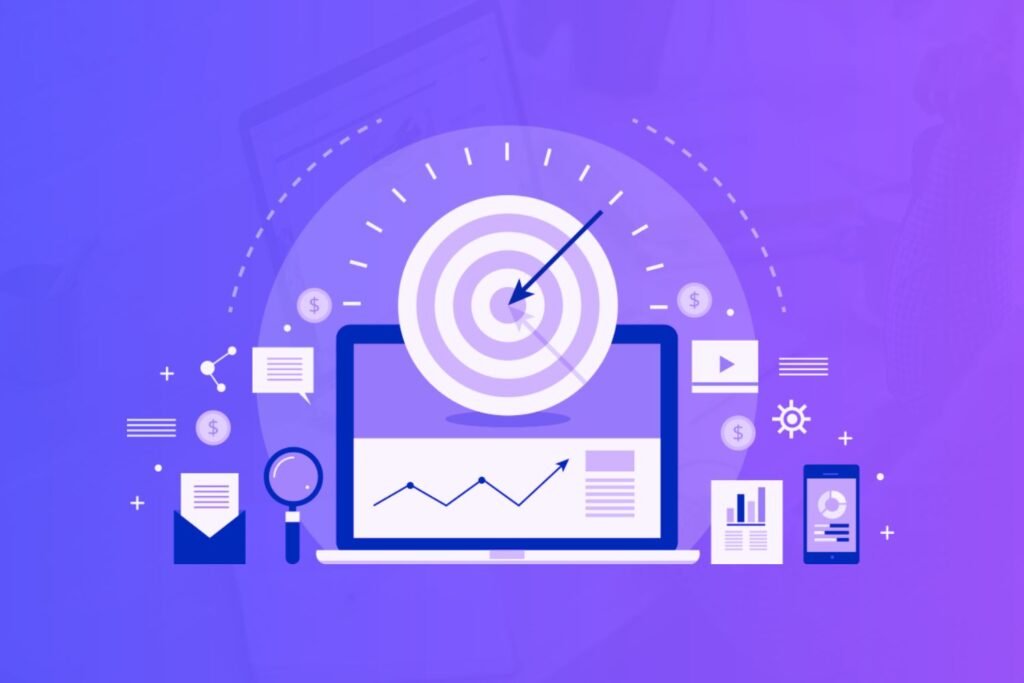Have you ever wondered how successful bloggers or YouTubers amass a huge following of 100k to 500k, or sometimes over a million?
They may appear to be successful because they are exceptional. It most likely makes you assume that you will never reach their heights. But that is not correct, and anybody has the ability to amass a sizable following.
While every circumstance is unique, many basic elements apply to all. Below are the key steps you should follow to build an audience for your company.
Disclaimer: If you buy any products through links on this site, I may earn a commission. But it doesn't make any difference to your cost, and it helps me keep this blog running. So you could always read my articles for free.
How to build an audience
We’ll go over the phases involved in the process of building an audience by providing useful information and then producing a lucrative solution for your followers.
Pick a niche
To build an audience, you must spend lots of time developing valuable materials and resources for your followers. There will be no real benefit to you other than the prospect of future earnings.
It’s difficult to maintain motivation when you’re producing stuff for people you’re not emotionally attached to.
So take note of target prospects that you’re interested in and might enjoy serving for a while without any payoff.
You can begin by jotting down the target markets that look promising for your venture. These may include:
- Activities that you like to do and analyze if they will be profitable as a service
- Skills or expertise that you already possess can also be great business ideas
- Past job backgrounds can also be utilized to start a company
The majority of digital companies pick a vast topic and narrow it down to a more specific part of it.
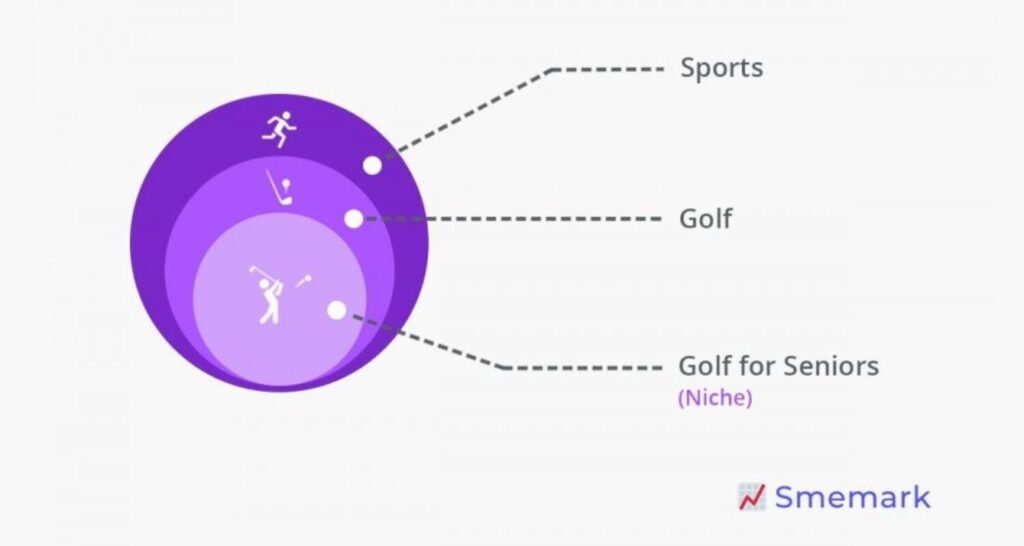
Some examples of specific niches are given below:
Touring is a broad niche, but it can be narrowed down to a more specific niche. For example, solitary tours, low-expenditure tours, organizing a trip to Disneyland, touring with family, or business tours.
Exercising is another example of a broad niche. It can also be narrowed down to exercising at home, yoga, selling athletic equipment, individual coaching, and losing weight.
One more example is wealth management. It can be restricted down to individual financial planning, debt payment, creating retirement plans, assisting with taxes, and buying stocks.
The final example is interior decoration. It can be restricted to low-expenditure decorations, minimalism, reorganizing, renovating houses, and high-end decor.
There are many other niches that you can narrow down to a more specific one in order to build an audience.
Know your audience
Knowing your market is essential before actually creating content to build an audience.
The objective is to understand the personality of your audience. It will help you think of fresh and interesting concepts that your audience will be curious about.
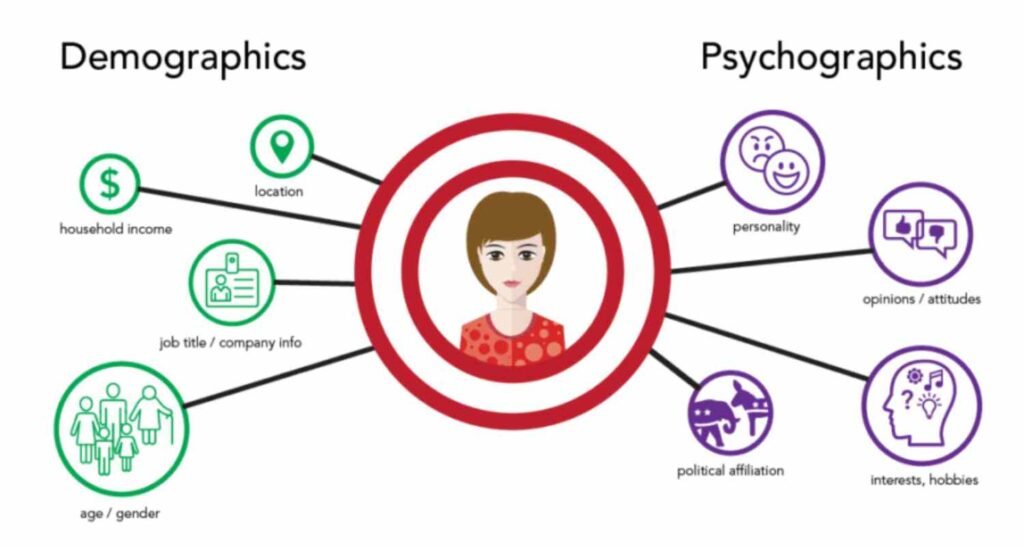
Image Source: Branding Compass
Develop a description of how individuals in your prospective market behave. It is critical in the process to build an audience and proceed to the following component: differentiation.
Decide your positioning/differentiation
Let’s face it. No matter what you start, there will be competitors. But that’s nothing to be afraid of. You can still make it. It’s all about how you differentiate yourself in the market.
What exactly is positioning? Positioning is a technique for getting your target market to link your company with certain elements related to their preferences.
To implement this approach, start by identifying your unique selling points. Consider anything that could be useful to your target segments. Your unique proposition could be based on something your audience either loves or hates.
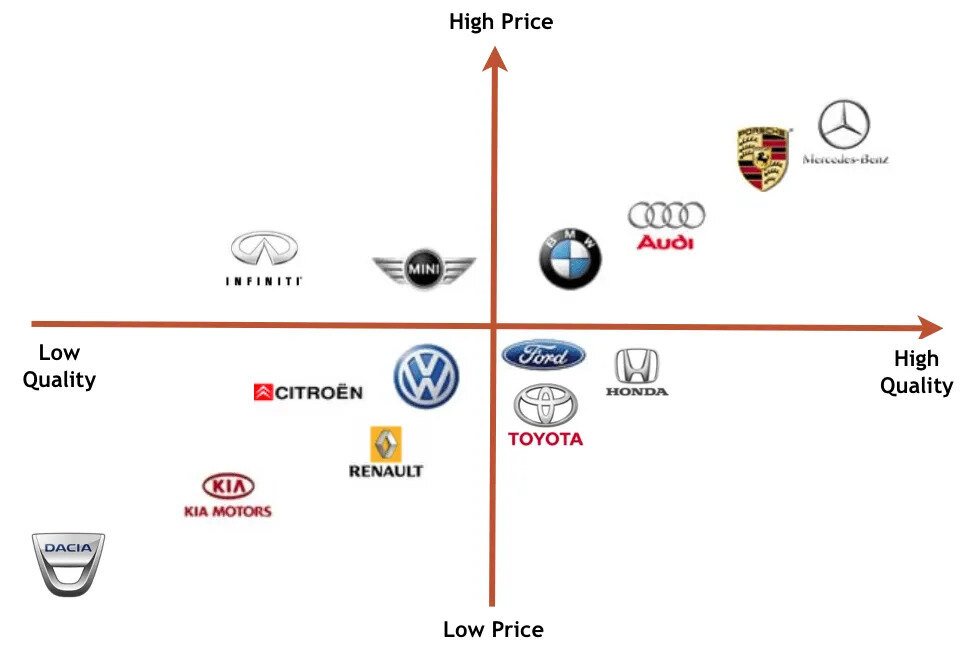
Image Source: Corporate Finance Institute
Many people, for instance, prefer highly technical guides, whereas others prefer beginner-friendly material. So one way to position your content is based on its complexity.
The following are a few examples of frequently used positioning factors. See if any one of these relates to your target demographic:
- Complexity: Simple vs Complicated
- Detail: Short vs Stepwise
- Content type: Mostly textual vs photos vs video content
- Familiarity: Novice vs Expert
- Price: Affordable vs Costly
- Word count: Less vs High
These are a few examples of unique selling points. You can find more of them if you do a little research. Doing this will exponentially increase your chance to build an audience that will find your content useful and stay loyal to you.
Start producing content consistently
Regularity while posting your content is critical, along with presentation and timing. Maintaining a posting routine is essential for two purposes. It increases organic web visitors and assists in building recognition. Let’s discuss these benefits:
Organic visitors: Writing blog posts is essential for SEO, which helps in boosting your web traffic. The number of visitors you get to your articles from SEO is cumulative. It improves organically as time goes on.
Company recognition: Since Google can scan every webpage for SEO, each article you post can potentially improve both efficiency and company reputation.
So here are the steps that can help you create content on a regular basis:
Generate topic suggestions
Postponing or avoiding posting material becomes easier when you’re just thinking of concepts when you require them. Linking to your previous posts also becomes harder.
To prevent this problem, create a list of amazing topics. Generate as many fantastic topics as you can. By the end of this exercise, you should have a sufficient number of topics to last for at least six months.
Develop a consistent content publishing workflow
When you’ve generated enough topics, you must decide the time of writing and posting. Once more, you must publish blog posts as frequently as possible.
If burning out and being unable to develop lots of materials is a possible fear, then you should post only once or twice a week. Whichever may be the case, just by being regular, you’ll see your skills improve with time.
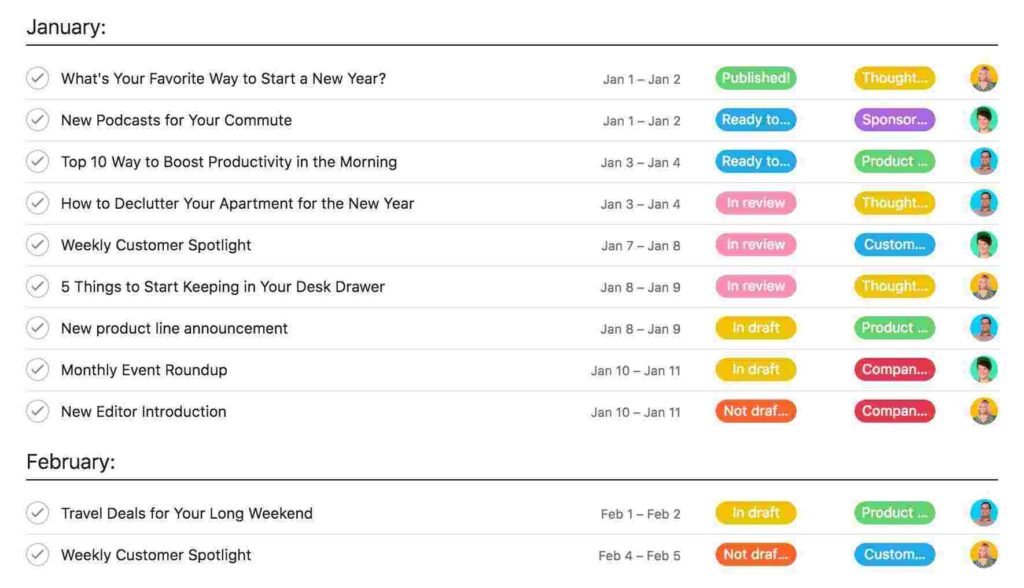
It is critical that you include these blog posts in your content calendar. Nothing too elaborate is required. You may plan your timetable using a plain worksheet.
Offer an incentive to turn visitors into followers
Just getting someone to read your content once is not enough. You should have a method to keep the conversation going. And you want them to keep coming back to read content that you publish in the future.
In other words, you want to turn them into followers or subscribers. How can you do that? With a lucrative incentive such as lead magnets.
A lead magnet is a reward that you may provide to your prospects at no cost, but in return for their contact details, such as an email.
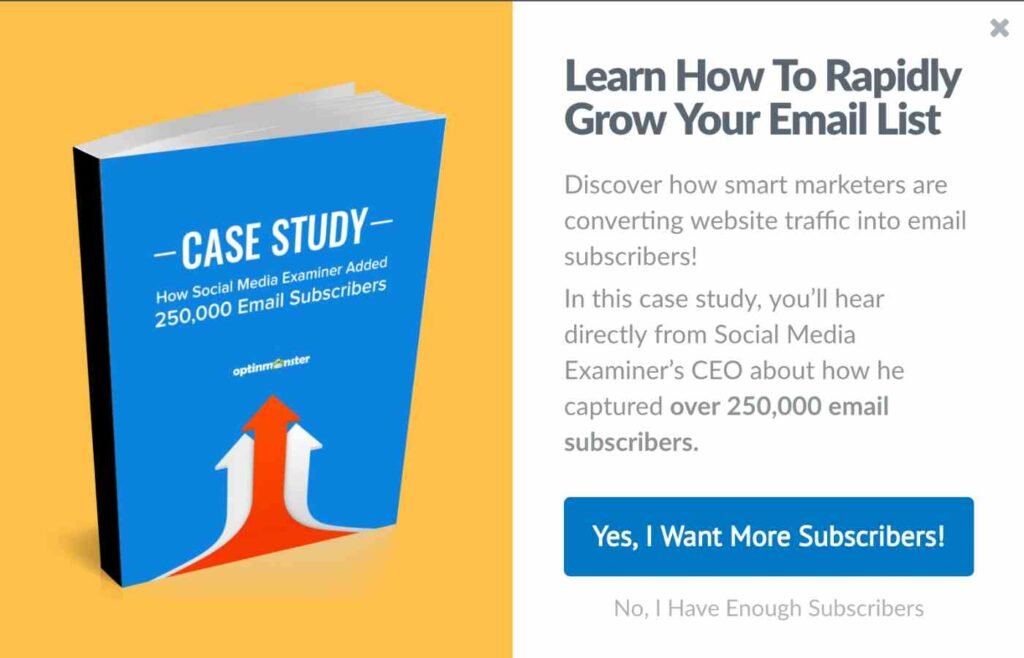
Image Source: Automizy
Using lead magnets is a critical step in your journey to build an audience. This is because your prospects won’t remember you after the first time they visit, even if you produce high-value material. So you can use their contact details to stay in touch with your prospects.
No doubt, posting content on social platforms, your website, or other publications is important. But when you’re moving towards a transaction, you must connect with our prospects personally.
The more costly the item you’re selling is, the more focus you should give to the middle of the sales funnel. The easiest way you can accomplish that is by developing a list of prospects’ email addresses!
But how can you grow email subscribers when prospects are already accustomed to lead-generation forms and ads? Utilizing lead magnets is the best option for that. So start turning visitors into subscribers from the beginning.
Promote your content
If you do not advertise properly, your revolutionary content is unlikely to hit its target. That is why you should also focus on content promotion.
The practice of spreading blog articles and other assets through both advertising and natural mediums is known as content promotion. It includes PPC ads, reaching out to promoters, public relations, social platforms, email newsletters, and forming associations.
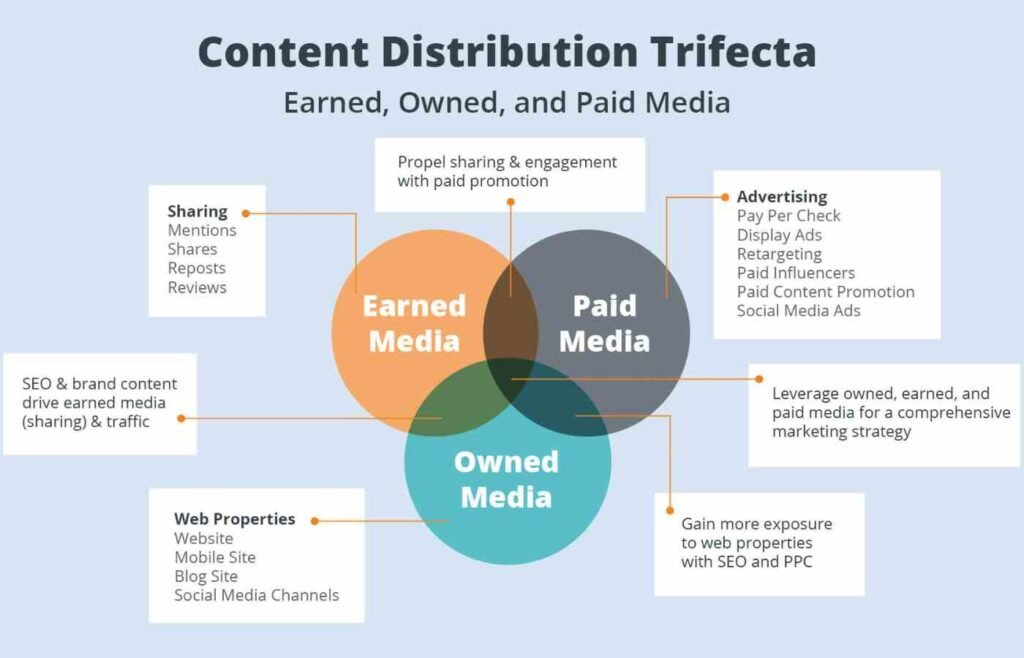
Image Source: Imbassy
Promoting your content is important because the number of people and businesses that invest in content marketing is growing. If you do not share your work, it will not be discovered by a larger audience, and you will not be able to successfully build an audience for your business.
At this stage, you are searching for strategies to increase your expansion. How can you quickly gain thousands of website visits and subscriptions?
To achieve that, you should first interact with your prospects on platforms that they prefer and then direct them toward your site. Here are two primary, tried-and-true tactics.
Guest posting: You will identify the platforms and blog posts that your prospects visit and post on those platforms as a guest.
That being said, you cannot just post random content. Always make sure to post about subjects that are related to your business. This is because you will want readers who actually like that content to join your platform.
PPC marketing: If you don’t want to spend too much time and have enough money to spend, you should choose pay-per-click ads.
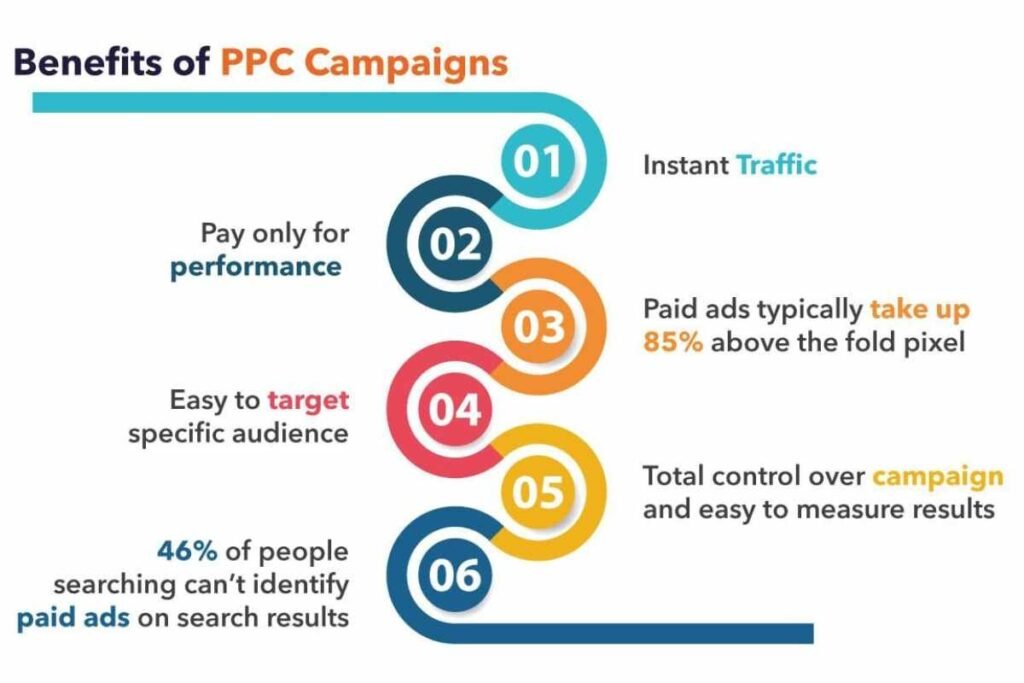
Image Source: abk digital
Once you get used to it, it won’t be difficult to gain new members for every $1 or $2 you spend. This means you’ll be able to establish a good number of subscriptions, such as 500-1,000, for $500-2,000. The best part is that this can be achieved in less than 30 days.
Conclusion
You may develop a solution and sell it to clients. On the other hand, you can also invert that strategy and initially focus on these steps to build an audience.
This is the better option because while generating a following, you also form connections with your prospects, allowing you to learn about them and offer solutions they’ll enjoy.
That is how you reduce your risk of losing money while achieving high conversion rates and immediate sales on whatever solutions you develop.
Having said that, I’ve provided you with a step-by-step roadmap of the process to build an audience first, but now it depends on you to take the first step.
Did I miss anything? Did you try these tips? Do you have any questions or comments? Share your thoughts below in the comments section.



